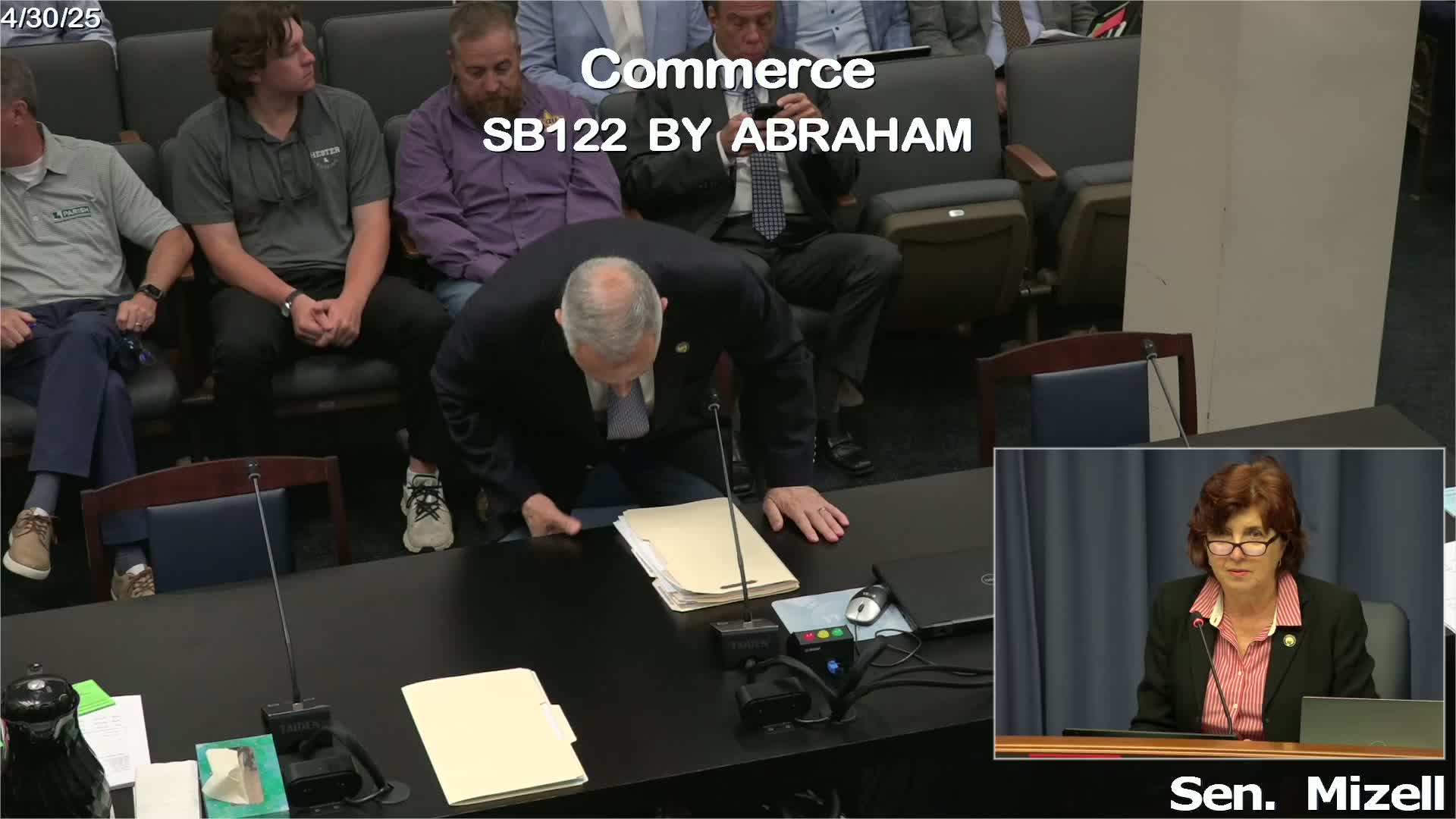Panel advances overhaul of contractor licensing, adds residential roofing and solar installer classifications
Get AI-powered insights, summaries, and transcripts
Subscribe
Summary
Senate Bill 122 — described by the sponsor as a rewrite and tightening of Louisiana contractor licensing law — was amended in committee to add residential roofing and solar installer classifications, institute recordkeeping and expand penalties; committee moved the amended bill favorably.
Senate Bill 122, a broad revision of Louisiana’s contractor licensing regime, was presented April 30 and advanced favorably by the Senate Commerce Committee after the committee adopted sponsor amendments.
Senator Abraham, the bill’s sponsor, told the committee SB 122 “rewrites, expands, tightens Louisiana’s contractor licensing laws.” Highlights described to the committee include: redefinition of “contractor” to cover additional work types and thresholds; creation of new license classifications for residential roofing contractors and solar-energy-equipment contractors; mandatory registration by verified business name for each license classification; mandatory five-year recordkeeping; higher civil penalties (a sponsor reference to fines “up to 10% of project value”); stricter qualifying-party and financial-disclosure requirements; and insurance or bonding requirements for contractors to avoid bid bans.
The sponsor offered an amendment set that clarifies that residential construction subclassifications must submit certificates evidencing workers’ compensation coverage; restores existing law language for mold-remediation applicants to show satisfactory completion and training; adjusts the effective date for residential-roofing and residential-construction licenses from Jan. 1 to Sept. 1; and prohibits contractors from interpreting or adjusting insurance policy claims on behalf of insureds. Committee members asked about reciprocity for out-of-state solar installers; Brad Hassard of the state Contractors Board testified that a solar-energy classification already exists and that the board has a reciprocal approach accepting training and licensing from other boards when applicants meet testing requirements.
The committee recorded a large list of industry supporters on information cards—representatives of roofing and construction trade groups and firms—and the chair announced the amendment was adopted “without objection” and the amended bill was moved favorably.
The transcript does not include a roll-call vote tally. Committee discussion focused on scope, reciprocity for out‑of‑state contractors and the bill’s recordkeeping and penalty provisions; no formal opposition testimony was recorded in the hearing record.
